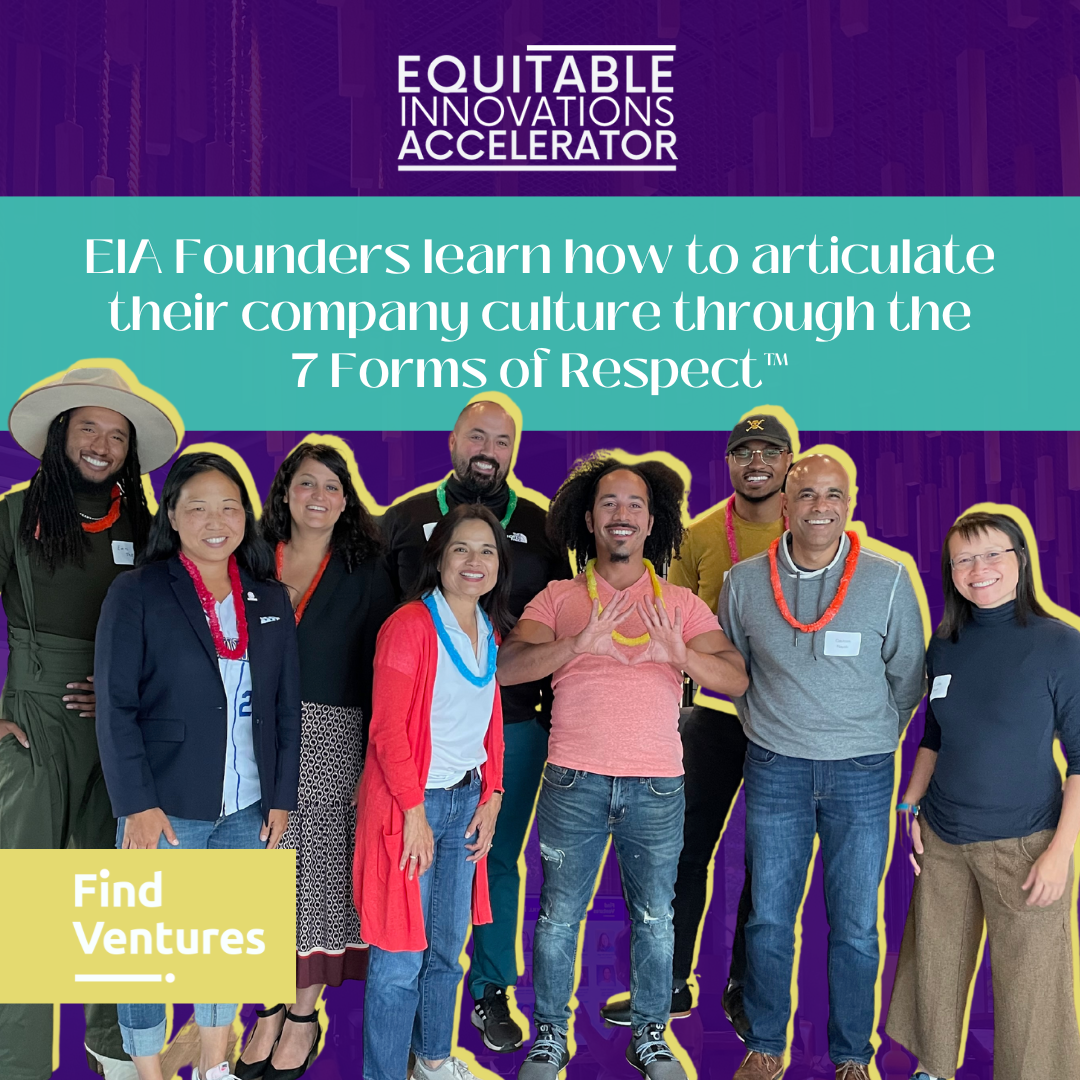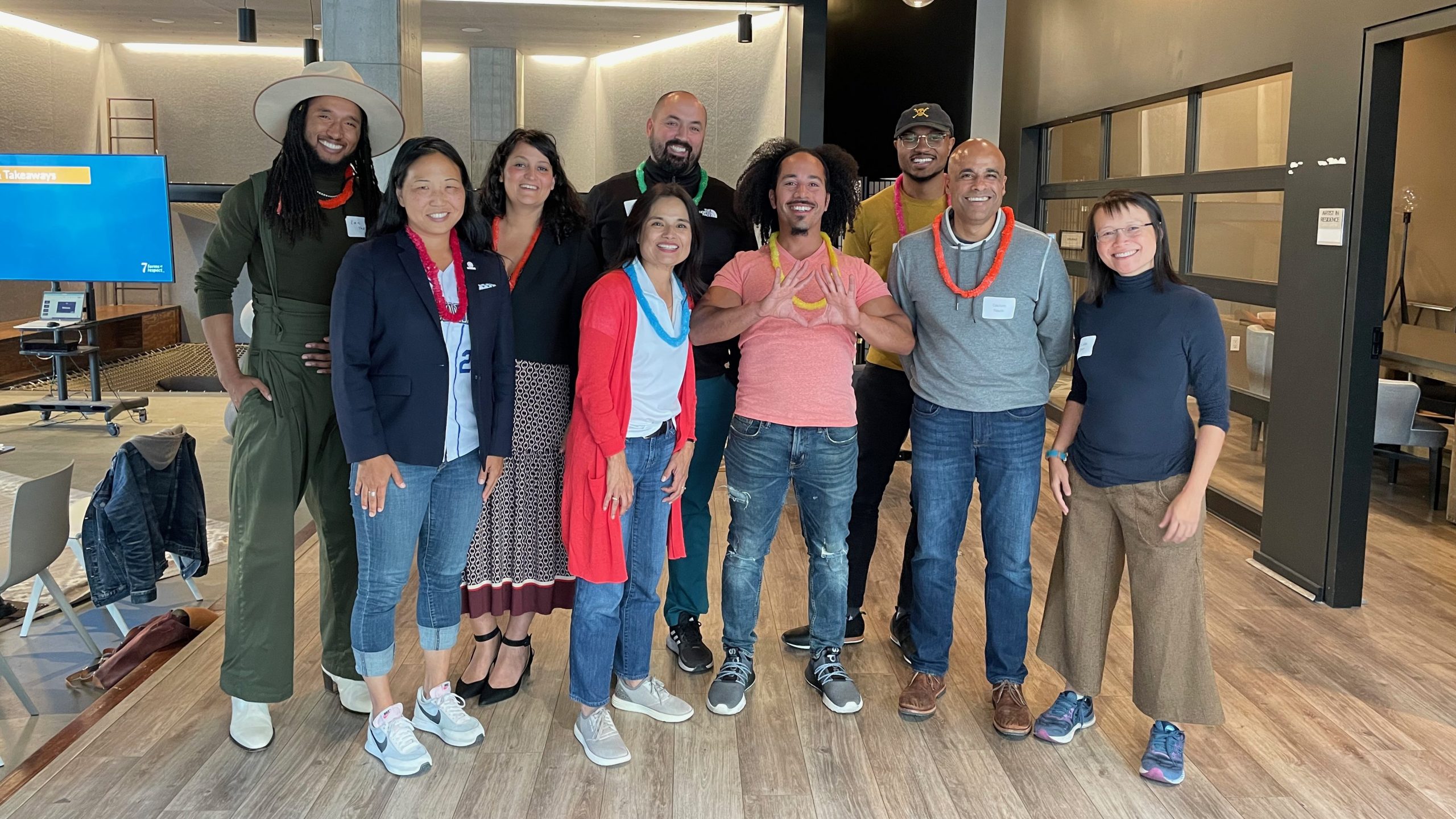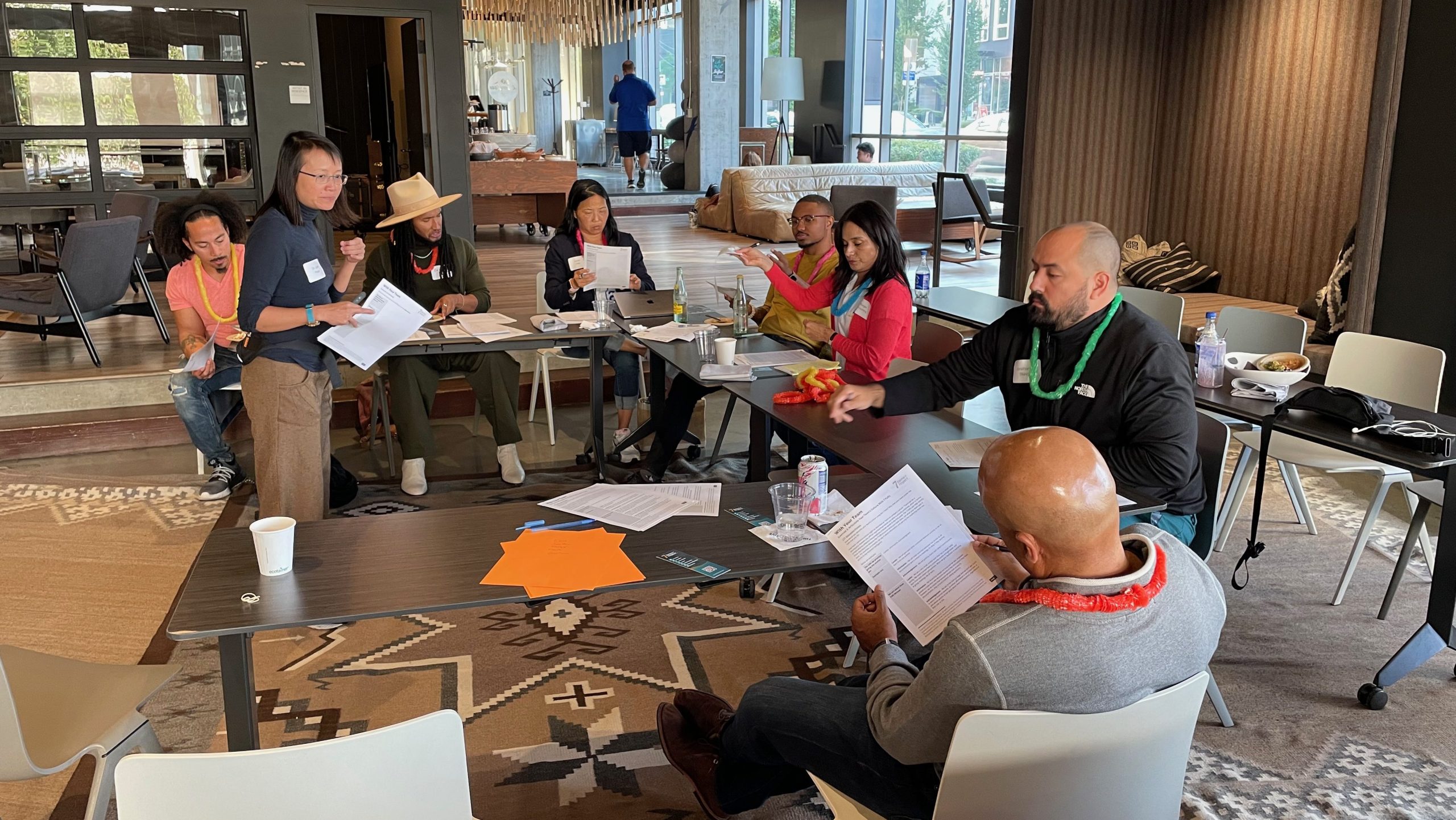Equitable Innovations Accelerator founders learn how to articulate their company culture through the 7 Forms of Respect™

November 1, 2022
When the Equitable Innovations Accelerator (EIA) founders gathered for their second in-person session on Oct 13, they focused on learning how to apply the 7 Forms of Respect™ to articulating their company culture.
The 7 Forms of Respect is a communication and relationship framework created by Dr. Julie Pham, Find Venture’s Curiosity Director, and the author of the Amazon best seller, 7 Forms of Respect: A Guide to Transforming Your Communication and Relationships at Work. It shows that there are seven different forms of respect that individuals, teams, and organizations prioritize as must matter, could matter, or doesn’t matter in their company culture.
“A lot of people think that the more forms of respect you prioritize, the more respectful you are. That’s not the case,” said Dr. Pham. “It’s about understanding which forms of respect are currently being prioritized and why, not about trying to be perfect because some forms of respect can conflict with one another when you have to decide how to behave in any given situation.”
Dr. Pham guided the founders through an “entrepreneur edition” of the 7 forms of Respect workshop to help them reflect on and articulate their own company’s prioritized forms of respect. For most of these startups, they have just their co-founders and a few other team members. Dr. Pham pointed out that how they behave influences which cultural norms are acceptable at work. For example, if the CEO is constantly canceling meetings at the last minute, then others may see that as acceptable. If they multitask, then it may signal to others it’s okay to multi-task. These behaviors illustrate a lack of punctuality and a lack of attention. It just means these founders don’t prioritize these two particular forms of respect, not that they are disrespectful.
As a company grows and has multiple levels of leadership, then there will be different sets of prioritized forms of respect. Dr. Pham uses the analogy of how language evolves in a country.
“The prioritized forms of respect at a company-wide level is what I call the national language. Then there are the different teams/departments like finance, marketing, engineering and the forms of respect they prioritize are regional dialects. And then there are individuals and what they prioritize. Those who are most successful are “multilingual.” They can adapt to different priorities.

Big takeaways from the session include:
- Being able to articulate their company’s prioritized forms of respect will help them explain to possible job candidates why they behave the way they do so they can manage expectations.
- It’s ok for their culture to be where it is because their culture will evolve. It’s more important to understand and get clear about their company culture than to strive for some arbitrary perfect culture.
- They need to reflect on who is determining the nature of their work. Is it them as founders or is it their customers?
- In getting clear on the forms of respect they do prioritize, they are laying the foundational culture for their company.
Learn more about the 7 Forms of Respect here.
Check out the last session the cohort had on building their communications skills!
Read up on the Equitable Innovations Accelerator founders here.
Join our community and sign up for our newsletter!

